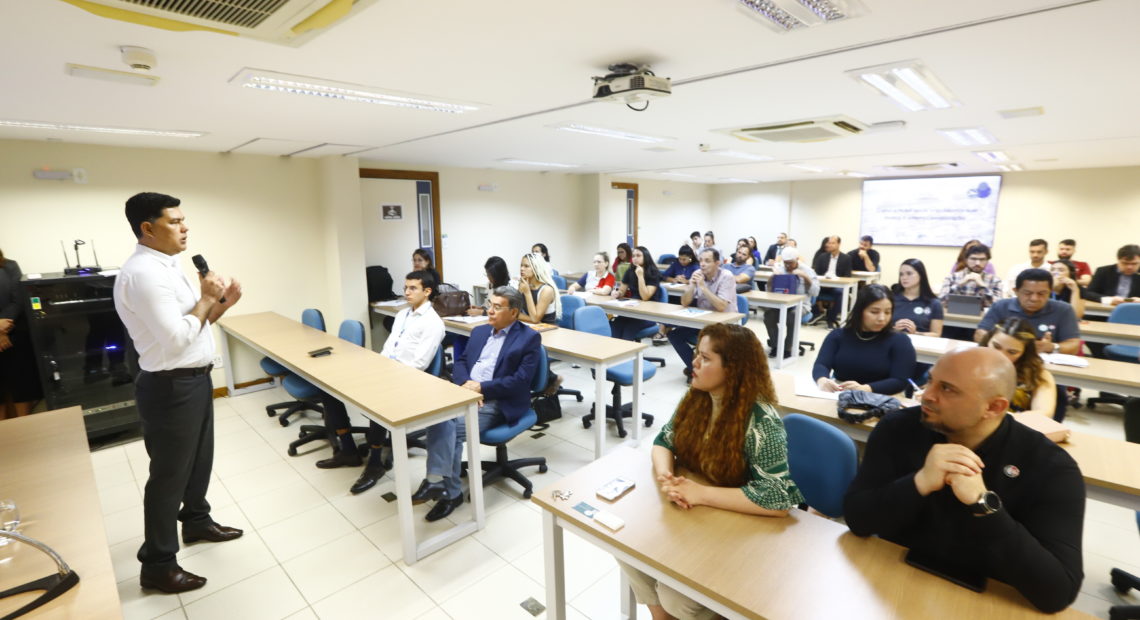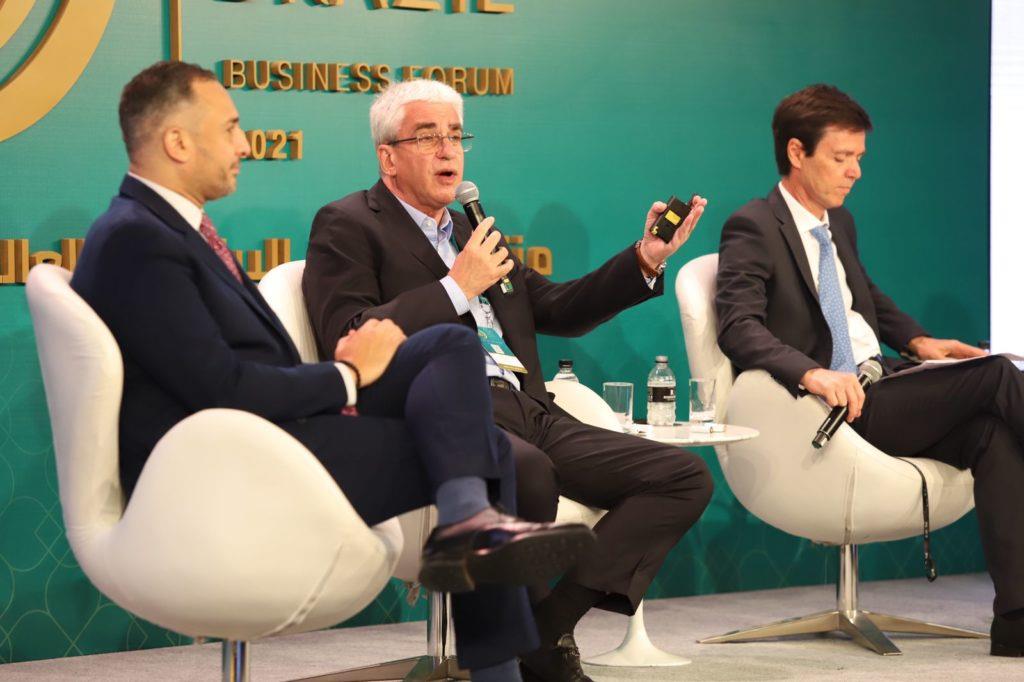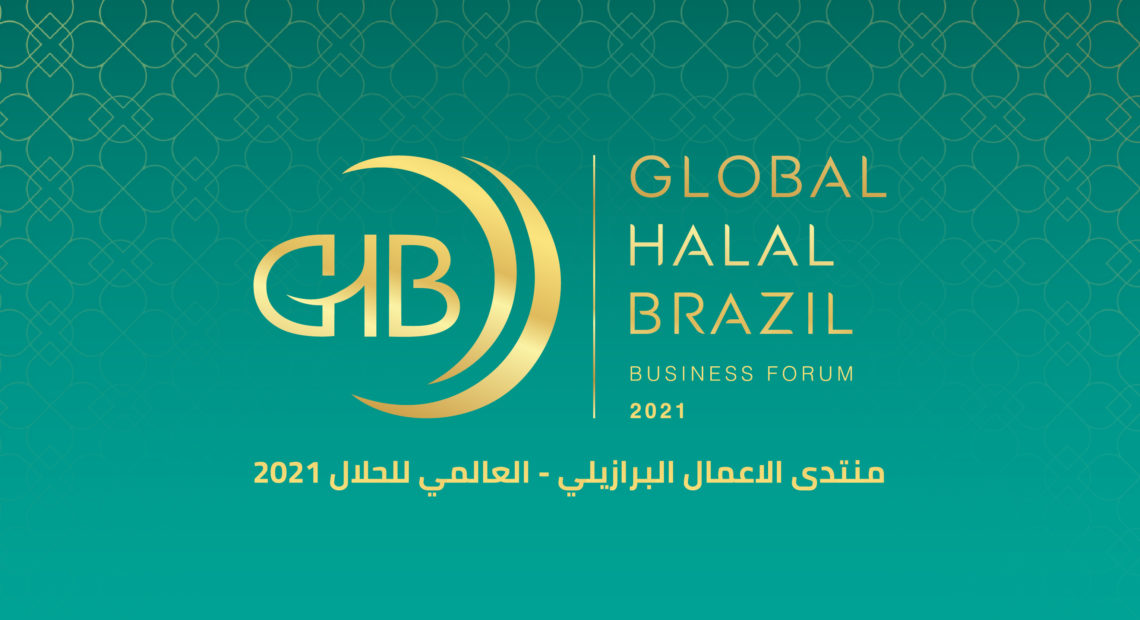Companies Docile and Peccin from Rio Grande do Sul, Brazil, certified their product lines as a strategy to boost sales to Arab countries. Now, they are already looking to break into new markets in the region.
 Peccin stand at the Gulfood: halal certified products
Peccin stand at the Gulfood: halal certified products
São Paulo – In a bid to boost sales to Arab countries, candy companies Docile and Peccin, from Brazil’s Rio Grande do Sul state, are betting on setting itself apart through halal certification – an attestation that products were made in accordance with Islamic law. With their products certified, both companies are seeing sales go up and working to break into new markets in Middle East and North Africa.
Docile has a portfolio of over 200 items, half of which are halal certified since 2013. The certified candy includes jellybeans, gummy candy and marshmallows. “Now, we are in the process of certifying our other product lines, drops, center-filled bubble gum and juice powders. We hope to have our entire line certified by next year,” says Export coordinator Cristian Ahlert.
Ahlert explains that modifications were made in order to get the products certified, such as using bovine gelatin instead of porcine and eliminating alcohol from the manufacturing process. According to the executive, the company realized the importance of investing in certification after going to industry exhibitions in Dubai.
“We have been going to the Gulfood (a food fair held in the United Arab Emirates) for several years now, and we noticed that there are more opportunities for halal products,” Ahlert explains. At this time, Docile exports to the UAE, Oman, Jordan, Kuwait, Palestine, Saudi Arabia, Algeria, Morocco and Egypt. The company exports 15% of its output. Out of its exports, 20% gets shipped to Arab countries.
“We have plans to increase our exports. I believe sales to Arabs will eventually reach 25%,” the coordinator says. Besides expecting to sell more to markets it’s already in, the company, which is based in the city of Lajeado, is also setting its sights on other Arab countries, like Qatar and Bahrain.
At Peccin, all product lines are halal certified – five chocolate product lines, 14 lollipop lines, nine hard candy lines and one chewing gum line. According to company trader Alessandra Schiffl, Peccin sought halal certification “due to strong customer demand at events such as the Gulfood and Sweets and Snacks.” The latter event is also held in Dubai. “We want to increase our focus on the Middle East, whose market is growing a lot,” the executive asserts.
Product modifications also include not using porcine gelatin and ceasing to use a colorant whose addition is forbidden under halal. “We have made it into Kuwait, Palestine, Yemen, Egypt, Algeria and the United Arab Emirates,” says Schiffl. Peccin already had a foothold in countries like Yemen and Palestine, she explains, but halal brought in new clients there.
Peccin’s plant, in the Erechim municipality, earned halal certification in November 2014. This year, after attending Gulfood in February, the company has seen results in its relationship with importers.
“At the Gulfood we realized that telling clients we’re halal makes a huge difference. We sensed that it makes them more interested and that they tend to trust us more,” Schiffl says. “We’re a company that’s always striving to innovate and adapt to market trends,” the executive claims.
Prior to becoming certified, Peccin already had clients in Palestine, Yemen, Saudi Arabia, Libya and Iraq. Now, 20% of export revenues originate from sales to the Arab world. Before going halal, Schiffl says, the rate was 10%. “Halal was a plus for us,” the trader notes, stressing that the company hopes to grow even further in Arab countries. “We are in talks with Jordan, Lebanon and Oman, and we also want to break into Qatar and Bahrain,” she reveals.



